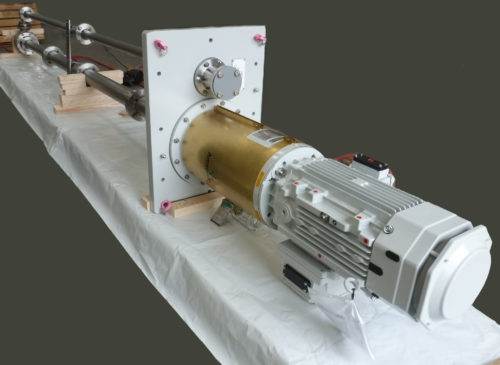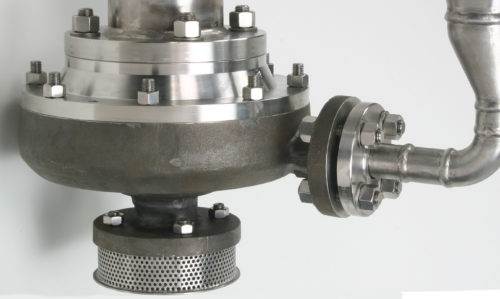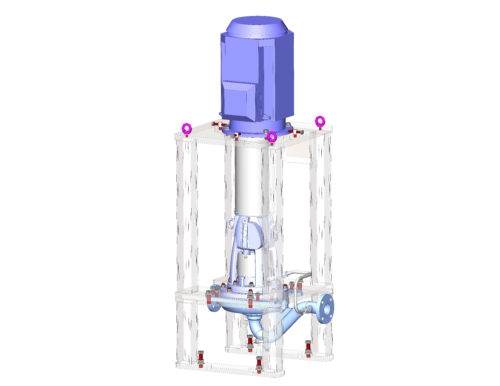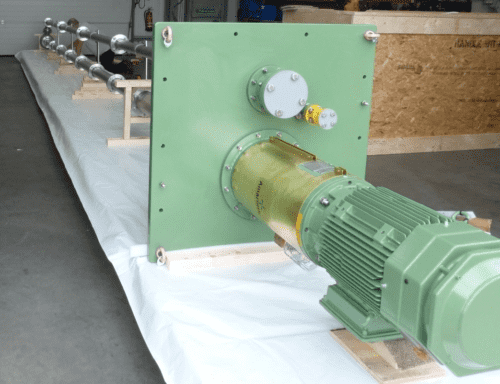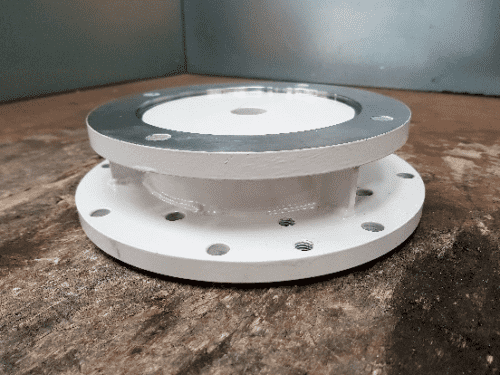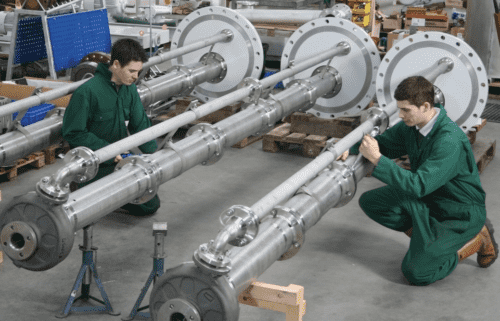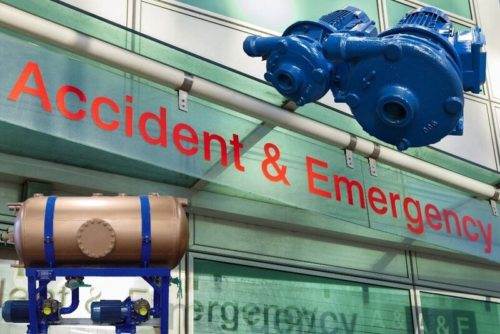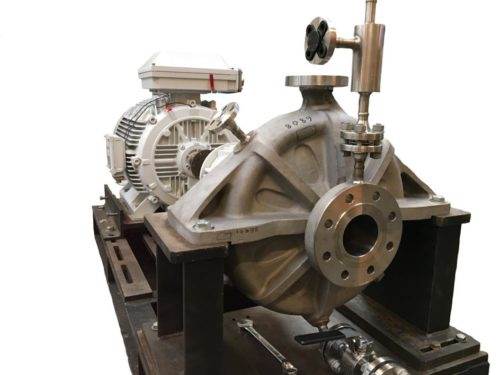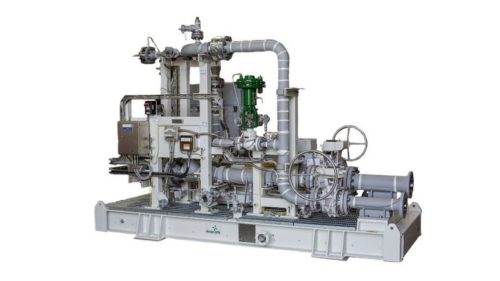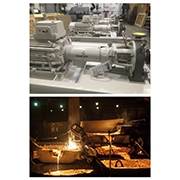- Contact 0870 350 7767
- |
- Advertise
Amarinth proposed titanium alloy for all wetted parts accepted...
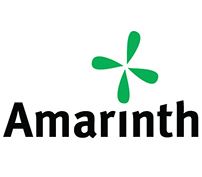 News and PR from Amarinth Ltd - Published 11 January 2018
Amarinth proposed titanium alloy for all wetted parts accepted by Cumberland for sodium hypochlorite application pumps
News and PR from Amarinth Ltd - Published 11 January 2018
Amarinth proposed titanium alloy for all wetted parts accepted by Cumberland for sodium hypochlorite application pumpsThe Umm Lulu field is located in the Arabian Gulf 30km north-west of Abu Dhabi, UAE and is being developed as part of a strategic initiative to pump 1.75 million barrels of crude a day by 2017, increasing Abu DhabiÂ’s total crude oil production to 3.5 million barrels a day.
Sodium hypochlorite is highly corrosive and so traditional super-duplex materials cannot be used. Cumberland considered using plastic components in the pumps but ruled this out due to known reliability issues and failure rates and so was seeking a new solution for this challenging problem.
Titanium alloy
Cumberland approached a number of manufacturers to tender for the pumps, which were required on a tight 24 week delivery, and Amarinth was the only company that offered a solution.
Drawing on its wealth of experience in casting exotic materials, Amarinth proposed using titanium alloy for all wetted parts, including the casing, impeller and shaft, to minimise corrosion from the sodium hypochlorite.
ADMA-OPCO was also very supportive of Amarinth securing this new contract as Amarinth had successfully delivered against ADMA-OPCO high specification requirements on previous projects.
Design for manufacture
Titanium has proven itself for long term reliability, particularly in the aerospace industry, and is now starting to become used in industrial applications.
There are however only a limited number of foundries that have the capability to cast components in titanium, especially in the larger sizes needed for pumps.
Titanium is relatively difficult and expensive to weld and so Amarinth designed the pump casting with an integrated drain bend and flange to minimise welding requirements.
A further challenge in casting titanium compared to other exotic alloys is maintaining good flow over severe changes of dimension or direction and so the design required careful consideration of fillets and tapers where such changes occurred.
Amarinth was able to source the titanium through its extensive supply chain and worked closely with Castings Technology International in Sheffield, United Kingdom, to cast the components.
Casting in an inert atmosphere
Titanium is a volatile material susceptible to atmospheric contamination and so the process has to be very carefully controlled.
Special copper crucibles are required to prevent the molten titanium attacking the crucible walls and due to the reactivity of the molten titanium the furnace must be under full vacuum to ensure casting quality.
High levels of traceability were maintained throughout the manufacturing and assembly as titanium components look very similar to those manufactured from other materials but any mistaken substitution would have led to potentially disastrous consequences.
Other announcements from Amarinth Ltd
-
Amarinth delivers API 610 VS4 pumps to Metito for ADCO Al Dabb’iya UAE
Amarinth has successfully delivered an order of API 610 VS4 pumps to Metito for installation in a waste water treatment plant at the ADCO Al Dabb’iya Facilities Development Phase III project...
11 Jan 2018
-
Amarinth expands in Kuwait with an order from Gulf Energy for API 610 VS4 pumps
Amarinth continues to expand its operations in Kuwait securing an order for API 610 VS4 pumps from Gulf Energy.
11 Jan 2018
-
Amarinth secures order from ZADCO for API 610 OH3 pump
Amarinth secures order from ZADCO for API 610 OH3 pump with cost-effective design and project management process.
11 Jan 2018
-
Amarinth delivers bespoke super duplex API 610 VS4 vertical sump pumps
Amarinth has delivered two bespoke super duplex API 610 VS4 vertical sump pumps to Descon Engineering for the Borouge petrochemicals complex in Ruwais, Abu Dhabi.
11 Jan 2018
-
Amarinth expands its pump services
Amarinth expands its pump services, extending the working life of third-party industrial single stage end suction pumps.
11 Jan 2018
-
Amarinth secures order for bespoke pump package
Amarinth secures order for bespoke pump package from CCTC for ADMA-OPCO offshore platform
11 Jan 2018
-
Amarinth products deliver significant cost saving
Amarinth products deliver significant cost saving to East Kent Hospitals University NHS Foundation Trust
11 Jan 2018
-
Amarinth secures Egina FPSO order for the second time
Amarinth has secured a further order of API 610 OH2 pumps to be used aboard Total’s new Egina FPSO vessel.
11 Jan 2018
-
Amarinth deliver complex skid package on short lead time to Mariner
Amarinth delivers complex “plug-and-play” API 610 pump skid package for the Mariner Platform in the North Sea
11 Jan 2018
-
Amarinth delivers complex “plug-and-play” API 610 pump skid package
Amarinth delivers complex “plug-and-play” API 610 pump skid package for the Mariner Platform in the North Sea
06 Dec 2016
-
Amarinth delivers $1.2M of API 610 high flow pumps to Fjords Processing
Amarinth delivers $1.2M of API 610 high flow pumps to Fjords Processing for produced water treatment on FPSO Catcher
06 Oct 2016
-
Amarinth secures order for bespoke pump package
Amarinth secures order for bespoke pump package from Hyundai Heavy Industries for ADMA-OPCO offshore platform
06 Oct 2016
-
Amarinth secures €500K order from Siirtec Nigi
Amarinth secures €500K order from Siirtec Nigi for the Al Dabb’iya Facilities Development Phase III project
06 Oct 2016
-
Amarinth delivers API 610 VS4 pumps for use in the STAR refinery, Turkey
The STAR project, set for completion in 2018, will be the first oil refinery to start operations in Turkey since the early 1970s...
06 Oct 2016
-
Amarinth design API 610 OH2 pump with Plan 53B
Amarinth design API 610 OH2 pump with Plan 53B and innovative acoustic hood for Offshore platform in Qatar on 28 week deadline.
05 Apr 2016
-
Amarinth proves that holidays are no barrier
Amarinth proves that holidays are no barrier when BASF required a new pump in an emergency
15 Mar 2016
-
Amarinth designs innovative low-shear vertically mounted API 610 OH 1 pump
Amarinth designs innovative low-shear vertically mounted API 610 OH 1 pump for the produced water nutshell filters from AI Energy Solutions
15 Mar 2016
-
We forge ahead using leading-edge technologies to manufacture titanium pumps
Amarinth forge ahead using leading-edge technologies to manufacture titanium pumps for the ADMA-OPCO Umm Lulu Development Project, Abu Dhabi
15 Mar 2016
-
Amarinth forge ahead using leading-edge technologies...
Amarinth forge ahead using leading-edge technologies to manufacture titanium pumps for the ADMA-OPCO Umm Lulu Development Project, Abu Dhabi
20 Jan 2016




